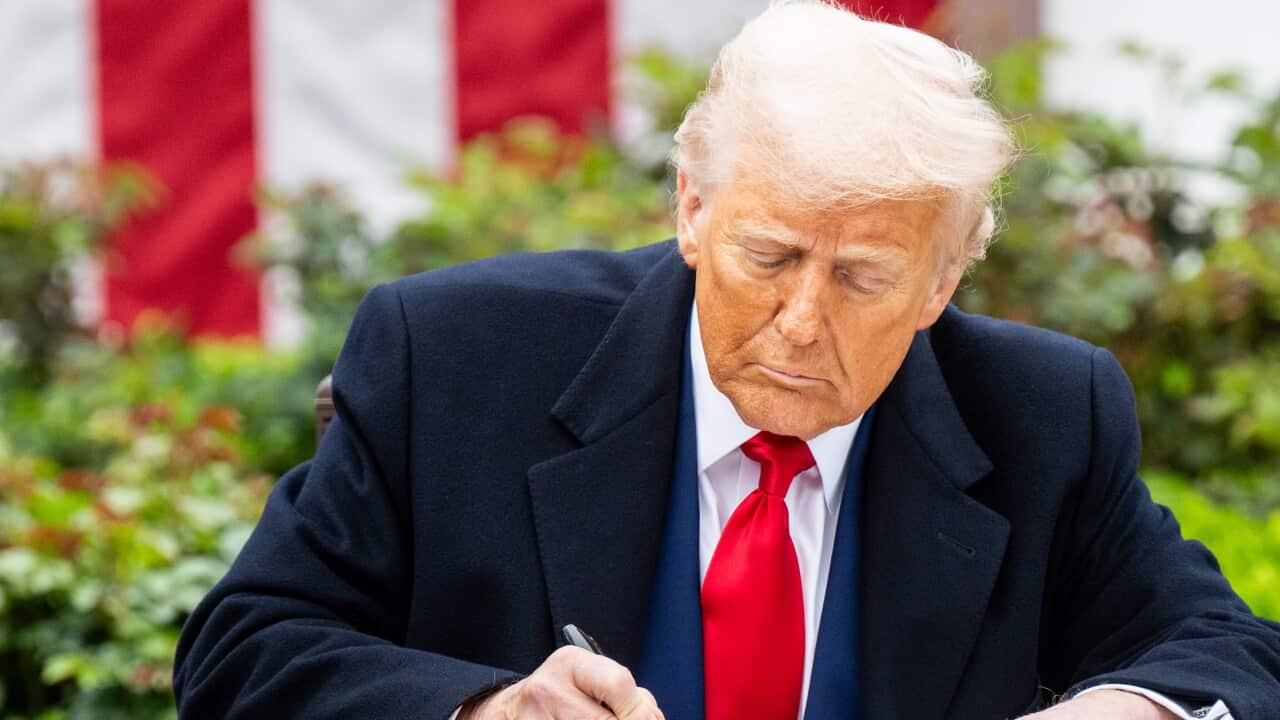Some of the largest and wealthiest companies in the world have reported losses equalling US$15 billion ($23.1 billion) this quarter, as the United States' latest tariffs eat into global profits.
US President Donald Trump has placed higher fees on imports from dozens of countries, which is costing businesses dearly, according to the new figures from Reuters.
Meanwhile, the Australian economy is showing "mixed" results, which experts say could leave the country in a vulnerable position.
Felicity Deane, professor of trade law and taxation at Queensland University of Technology, said the tariffs have "thrown out the door" decades-old trade agreements, raising questions about what happens next.
Here's what to know.
Which sectors have been affected?
A majority of the losses caused by the US tariffs have come from the industrial, manufacturing and automotive sectors, while financial and technology sectors have been less affected.
Companies like Caterpillar, Yum Brands, Molson Coors and Marriott are among those experiencing tariff-related losses.
Deane said complex supply chains and legalities mean tariffs can be inconsistent in their impact on pricing.
"While some sectors that rely on importing raw resources, like manufacturing, will obviously be impacted, it can be harder to tell how other sectors may be affected," she told SBS News.
"Different countries may have differing definitions of their products, which can also change how customs classify imports, and therefore tariffs themselves.
"For instance, a taxable product in one country, by definition, might not be in another."
Deane said while it is hard to discern, Trump's rationale behind the tariffs is that he wants to bring back investment and manufacturing to the US.
"He's saying the way to do this is through tariffs. And that he feels the United States is treated unfairly by its trading partners," she said.
What impact is Trump having on the US economy?
Luke Hartigan, a lecturer in economics at the University of Sydney, told SBS News the US economy is dealing with a lot of uncertainty.
"I think there's always a risk of a recession, and Trump's approach to people could also harm the economy," he said.
Earlier this week, Trump fired the commissioner of the US Bureau of Labor Statistics (BLS) after the department revised down recent job numbers by more than 250,000.
Despite a lack of evidence, Trump said the figures were "rigged" to make his administration "look bad".
Hartigan said this was "deeply concerning".
"What this says is that Trump is not happy with the figures being provided, and that he would rather accuse the BLS of cooking the books rather than acknowledging the data that didn't suit him," he said.
"What's deeply concerning about that is that if he puts in someone who's just looking to please Trump, they may want to mess with the data.
"Then we're in a world of very bad outcomes because you don't know what's happening in the economy."
While the threat of recession and surprise dismissals might make investors uneasy, the impacts on Australia appear limited.
What does this mean for Australia?
Australia managed to avoid an increase in the tariffs imposed by the US, with the rate remaining at the lowest level of 10 per cent.
Flavio Menezes, a professor of economics at The University of Queensland, said any impact from these tariffs would be "indirect" for Australia.
"The broader and more significant impact is likely to be indirect — stemming from how these tariffs affect China, Australia's main trading partner, and subsequently other key partners such as the European Union, the United Kingdom, Japan, and South Korea," he told SBS News.
"The full extent of these ripple effects remains largely unresolved."
While the cost of groceries and household goods will largely remain the same, you could experience changes to your superannuation which is tied to foreign stock markets.
But for now, Australia's economic picture is "mixed", Menezes said.
"Unemployment has edged up slightly but remains at historically low levels. Inflation has returned to within the RBA's target band, and while economic growth continues, it is modest."
For the latest from SBS News, download our app and subscribe to our newsletter.

